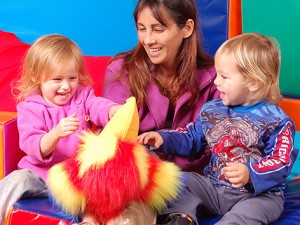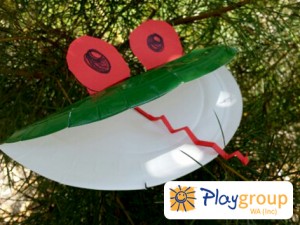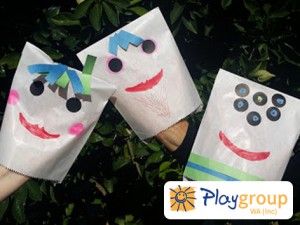Puppets – Playgroup
 Puppets can be entertaining and engaging for children of all ages.
Puppets can be entertaining and engaging for children of all ages.
Did you know?
Assuming roles and interacting through puppet play with other children provides lots of opportunity to develop and practice language and social skills in sharing, negotiation, cooperation and problem solving.
Add Language
When playing with puppets, children learn the turn taking of a conversation.
Playing with puppets at playgroup gives children a chance to use their language to negotiate what the play will be about, who will have what roles and to give voice to their character.
Other development
For children with limited language, having a puppet to move can help them to connect with others. Playgroup provides lots of opportunities for this to occur.
Puppets can be used to act out desired behaviour, unacceptable behaviour and consequences. This can be done in a fun way that doesn’t shame any particular child or family but reinforces the playgroup rules.
Puppets work well at playgroup as a creative making activity. Simply sticking or drawing faces on paper bags can be an easy way to introduce this activity and develop fine motor skills.
You could also have some ready-made puppets available for children to practice their social and storytelling skills. Puppets can also be used to act out favourite rhymes and stories e.g. 3 Little Monkeys Jumping on the Bed; 3 Little Pigs; The 3 Bears.
Across the ages
All the activities listed on our “Play Ideas” page can be applied across different age groups. See how playing with puppets can be fun for babies, toddlers and children.
Activities listed under “playgroup” are suitable for groups of children of various ages. They provide opportunities for early learning and social play.



